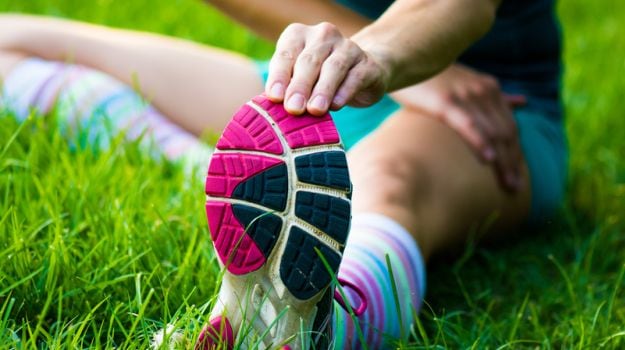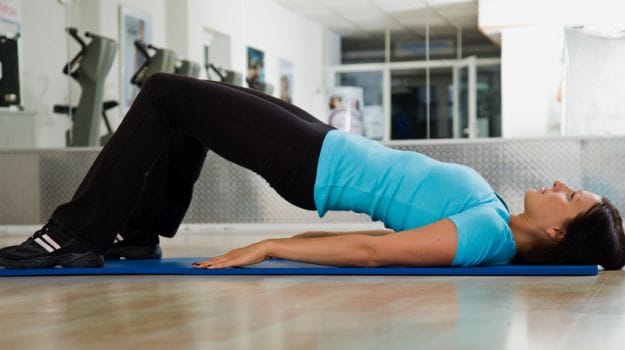 We all know that a warm up is an essential and integral component of a workout regime. But how do you know if your warm up is appropriate and when to move on to the next phase of the workout?A warm up serves not one, but many purposes: to elevate your core temperature, to lubricate your joints, to gradually increase the range of motion in your joints in all planes of movement, to increase your heart rate in preparation of the more vigorous activity to follow, to establish the neural pathways that will be used during the course of the workout as well as release oxygen carriers to facilitate delivery and its utilisation during higher intensities to follow.
We all know that a warm up is an essential and integral component of a workout regime. But how do you know if your warm up is appropriate and when to move on to the next phase of the workout?A warm up serves not one, but many purposes: to elevate your core temperature, to lubricate your joints, to gradually increase the range of motion in your joints in all planes of movement, to increase your heart rate in preparation of the more vigorous activity to follow, to establish the neural pathways that will be used during the course of the workout as well as release oxygen carriers to facilitate delivery and its utilisation during higher intensities to follow.
Therefore, the warm up should be sufficient and efficient and specific to the activity. Warm ups for strength and muscle conditioning needn’t have highly elevated heart rates but more preparatory movements so as to engage the right muscles, reinforce form, posture and alignment ,in order to perform complex or even simple everyday movements correctly.

Points to Remember Before Warming Up
Warm ups should be specific to the activity. This allows for better mental and physical preparation for the more intense activity to follow. The duration of a warm up should be roughly 5-10 minutes. If you are doing an aerobic activity, the intensity level should be around 6-7 on the Borg scale or about 60-70 percent of your heart rate reserve. At the end of the warm up, your intensity should be close to a 5 or about 50 percent of your heart rate reserve. If not, turn up the intensity of movements in the warm up.
Dynamic stretches of all joints is mandatory, particularly the joints that will be most in use. Warm up the stabilisers of all joints as well. Static stretches in a warm up are to be avoided. Foam rolling prior to warming up is a good way of loosening and releasing the muscles and hence will be more effective not only at generating force later in the course of the work out but also in upholding the integrity of the movement so as to perform it safely and minimise risk of injury.
Active movement during warm up phase will ensure better form and execution and thereby minimise risk of injury. It will by default economise energy expenditure, making you perform the movement better and for longer.
5 Great Warm-Up Drills You Must Perform
Here are five warm-up exercises to get started with –
1. Walking, Jogging, Cycling or Skipping
Any of the above can be performed for 3-4 minutes. Gradually increasing intensity and elevating your heart rate. Following which some mobilization drills like calf raises,walking on heels, high knees, butt kicks,hip rotations. If you have a plastic pipe or even a towel use that for pass through to mobilize the shoulder.

2. Mobilisation of the Joint
Mobilisation of all joints (shoulder rolls, hip rolls, leg swings, going on toes to heels etc.) is essential. Together, the movements should elevate core temperature, increase heart rate, loosen the joints and increase range of motion. Dynamic stretches gradually opens up the joint, and you need just 8-12 repetitions. Once optimum range of motion is achieved, move onto another joint or open the joint in another direction.
Movement prep like pelvic bridges is helpful too. Lye on your back with feet on the floor about hip width distance apart. As you exhale, lift hips off the ground till your shoulder, hips and ankle are in a straight diagonal line. Inhale as you bring hip to the floor.

3. Squats
Your feet should be about shoulder width distance apart and toes turned out about 15-20 degrees. Lower your hip like you’re sitting in a chair, inhaling as you do so. Allow hips to go below your knee, keeping your chest upright and looking straight ahead. Exhale as you come back up to the standing position. Depth of squat depends on strength and mobility of lower body joints, so go to your optimum range at the moment and slowly work your way through increasing both.

4. Push Ups
Get on the floor on your hands and toes, depending on your fitness level. Hands should be slightly wider than your shoulder or under your shoulder. Inhale as you lower your chest to the ground. Exhale as you come back to start position.

5. Sit Ups
Lie on your back with your feet on the floor. As you exhale, engage your abs by lifting your upper body to a seated position keeping arms in front of you. Inhale and lower to the ground. Do 8-12 repetitions of each.
An efficient and sufficient warm up would be beneficial in preventing injuries and lead to less fatigue at higher intensities or even enable you to work out at higher intensities for longer or with greater ease.
[“source-gadgets.ndtv”]










